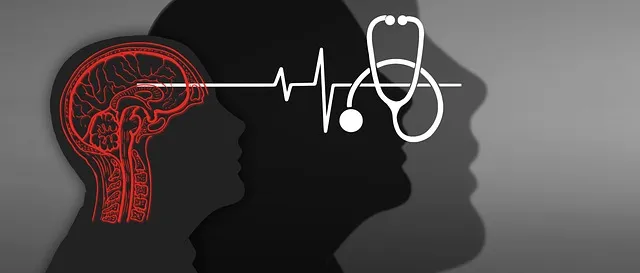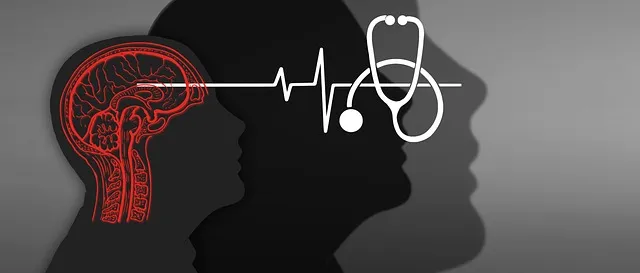The Northglenn Kaiser Permanente mental health access center prioritizes creating a safe, supportive environment for group sessions through active listening, open-ended questions, non-judgmental feedback, and clear boundaries co-created with participants. Incorporating compassion cultivation practices, guided by the Mental Wellness Podcast Series, fosters empathy, kindness, and self-compassion, enhancing individual and collective mental wellness support tailored to diverse needs. This approach, backed by studies, transforms the center into a nurturing haven for healing.
Mental wellness group facilitation is a powerful tool for fostering community and support, as demonstrated by programs at Northglenn Kaiser Permanente mental health access center. This article explores effective techniques for facilitators to create safe, engaging spaces where individuals can connect, share experiences, and grow. We delve into strategies for establishing ground rules, encouraging open communication, managing group dynamics, and providing tailored support, ultimately enhancing the therapeutic benefits of group settings.
- Establishing a Safe and Supportive Environment
- – Creating ground rules and boundaries for group sessions
- – Fostering trust and open communication among participants
- – The role of the facilitator in ensuring a safe space
Establishing a Safe and Supportive Environment

Creating a safe and supportive environment is a cornerstone for effective mental wellness group facilitation. At the Northglenn Kaiser Permanente mental health access center, this involves fostering an atmosphere where every participant feels seen, heard, and respected. Techniques such as active listening, open-ended questioning, and non-judgmental feedback help to build trust and encourage vulnerability. Facilitators should also ensure clear boundaries are set, promoting a sense of security while allowing for honest discussions.
In designing mental health education programs, incorporating compassion cultivation practices can significantly enhance this safety net. Teaching empathy, kindness, and self-compassion not only benefits the individuals in the group but also contributes to a collective sense of support. This approach, backed by evidence from various studies, is integral to the overall success of group facilitation, making it a key strategy for promoting mental wellness within communities, including Northglenn Kaiser Permanente’s initiatives.
– Creating ground rules and boundaries for group sessions

Establishing clear ground rules and boundaries is an essential aspect of facilitating successful group sessions at the Northglenn Kaiser Permanente mental health access center. These guidelines create a safe and supportive environment, fostering open communication and ensuring every participant feels heard and respected. The rules should be co-created with the group to promote ownership and accountability. Facilitators can encourage members to share their expectations, concerns, and suggestions, catering to diverse needs.
Boundaries in group settings are crucial for managing dynamics, especially when discussing sensitive topics. Techniques such as active listening, empathy, and non-judgmental attitudes are fundamental communication strategies (Social Skills Training). Compassion cultivation practices can help participants build understanding and patience, allowing them to engage in meaningful discussions. By setting these boundaries, facilitators enable individuals to express their mental health experiences without fear of repercussions, fostering a nurturing atmosphere.
– Fostering trust and open communication among participants

In facilitating mental wellness groups at the Northglenn Kaiser Permanente mental health access center, fostering trust and open communication is paramount to creating a safe space for participants. Group members often face diverse challenges, and establishing a supportive environment encourages them to share their experiences and perspectives freely. Facilitators can achieve this by promoting active listening, where each individual’s thoughts and feelings are given undivided attention and respect. This not only enhances understanding but also signals that every voice is valuable and worthy of consideration.
Additionally, incorporating cultural sensitivity in mental healthcare practice ensures that communication strategies resonate with the unique backgrounds of group members. Recognizing and valuing these differences fosters a deeper sense of belonging and encourages emotional well-being promotion techniques that are tailored to individual needs. By creating an inclusive atmosphere, facilitators can help participants feel understood, validated, and empowered to engage in meaningful discussions that contribute to their mental wellness journey.
– The role of the facilitator in ensuring a safe space

In facilitating mental wellness groups at the Northglenn Kaiser Permanente mental health access center, creating a safe and supportive environment is paramount. The group facilitator plays a crucial role in cultivating a space where participants feel comfortable sharing their experiences and insights. Through active listening, non-judgmental attitude, and empathetic responses, facilitators foster an atmosphere of trust and understanding, mirroring the principles of Cultural Sensitivity in Mental Healthcare Practice. This ensures that each individual’s unique background and perspectives are respected, promoting open dialogue.
Moreover, incorporating compassion cultivation practices can significantly enhance this process. Facilitators can guide discussions that encourage empathy, kindness, and self-compassion among members, mirroring themes often explored in the Mental Wellness Podcast Series Production. By modeling these behaviors, facilitators not only improve group dynamics but also contribute to the overall mental wellness of participants, making the Northglenn Kaiser Permanente center a beacon of support and healing.
Group facilitation techniques, such as those employed at the Northglenn Kaiser Permanente mental health access center, play a pivotal role in creating supportive environments for individuals seeking mental wellness. By establishing clear ground rules and fostering trust through open communication, facilitators can help participants feel safe to share their experiences and connect on a deeper level. This, in turn, enhances the overall effectiveness of group sessions, making them a valuable resource for improving mental health outcomes.






